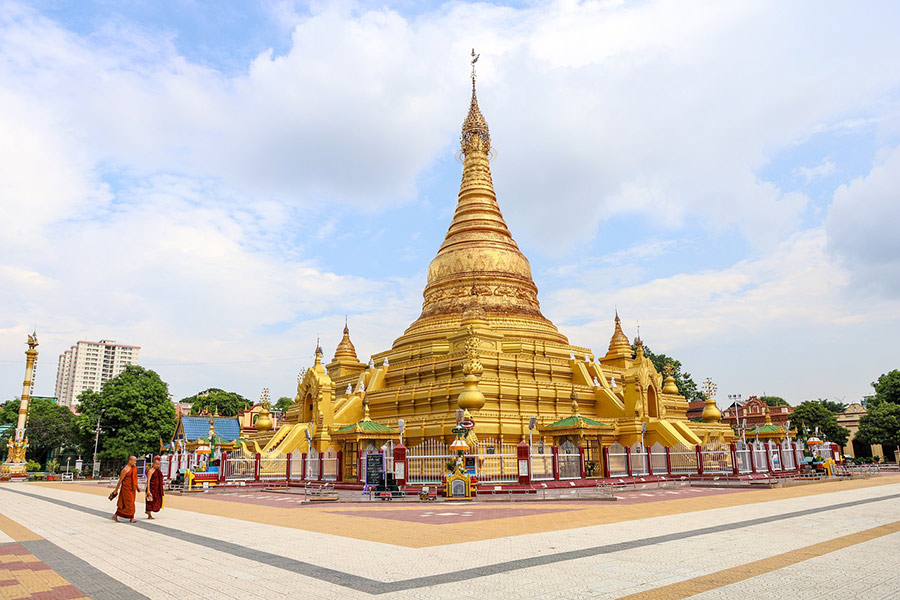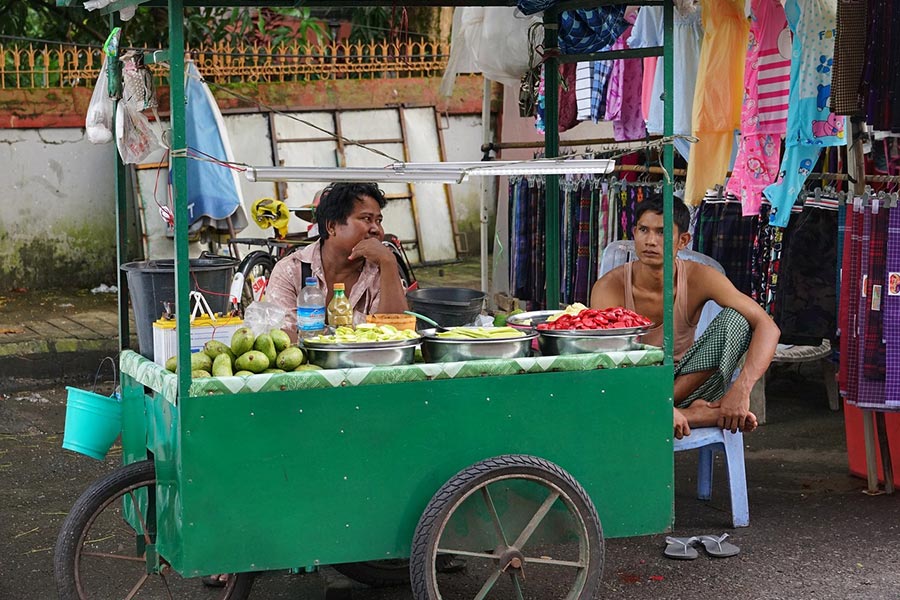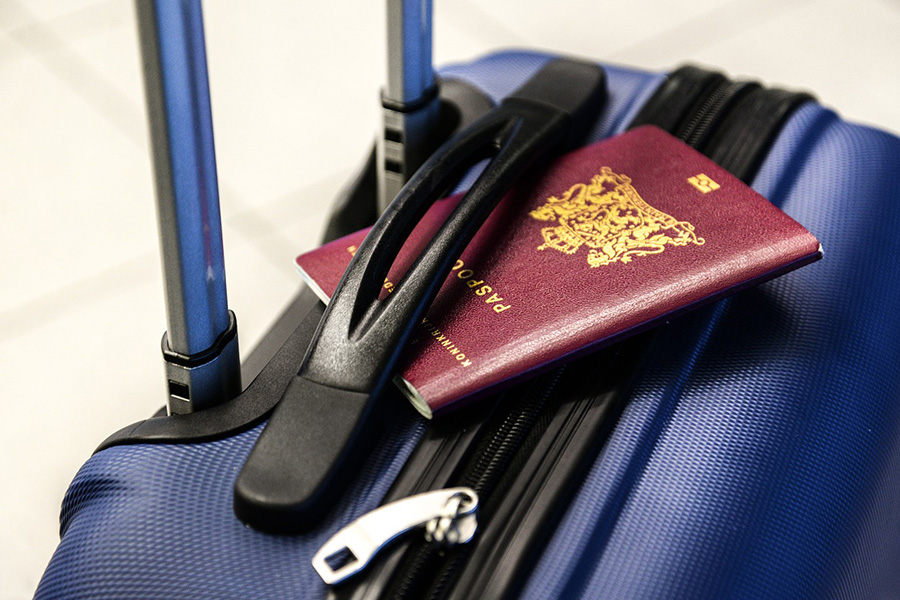Travelling safely in Burma requires just a little bit of care, maximum respect for the local culture and a pinch of common sense. Burma is a country waiting to be discovered, the destination of a dream trip.
Burma is an unspoilt land that has only recently opened its doors to foreign travellers. Geographically it is about twice the size of Italy and is characterised by rocky spurs that run throughout the country and rise up to the north, where they join the snow-capped peaks of the Himalayas in southern China.
To the west is the border with India and to the east is the ‘Golden Triangle’ with its wonders. In the south, the transparent sea of the Andaman Islands laps the beaches as far as the eye can see.
Let’s take a look at how to approach the journey in safety to best enjoy this extremely fascinating place.
TRAVELLING SAFELY IN BURMA: DOCUMENTS REQUIRED TO ENTER THE COUNTRY
The first essential document for entry into Burma is obviously a valid passport, with at least six months to go before it expires. As is standard practice, you will need an entry visa, which can be requested either at the Embassy or online, as explained in detail in the article dedicated to visas for Burma.
We recommend that you carefully follow the instructions for filling in that we have specified in the article linked above, especially with regard to the link to the official government website on the visa. Always refer to the official website indicated.
DIRECTIONS FOR CUSTOMS ENTRY
There are a few aspects worth pointing out regarding customs access for entry into the country. When entering or leaving Burma, it is necessary to declare any foreign currency that is equal to or greater than the equivalent of US$10,000. Tourists’ luggage may also be subject to thorough checks.
The possession of jewellery such as rings, necklaces and bracelets must be absolutely declared and their value indicated. This is to avoid suspicion of fraudulent export of valuables.
Equally illegal is the export of parts from monuments, antiques and religious objects.
We recommend that you do not collect and take with you any small parts of monuments that appear to be abandoned, as customs controls are very strict in this respect.
If you decide to buy handmade jewellery or precious stones, even of value, as a personal interest, you must do so only and exclusively from shops that have authorisation and that must issue a receipt to be presented to customs, an essential requirement for exporting the objects outside the country.
The advice for travellers is to plan a sufficient amount of cash (euros or US dollars) to take with you on your trip.

TRAVEL SAFELY IN BURMA
Burma is undergoing a transformation in terms of politics, economy and social balance.
The current situation highlights friction between the government authorities and various ethnic groups, which can lead to protests, as well as religious conflicts between the Muslim minority and the Buddhist majority.
In addition to this, the local population faces difficult living conditions and economic problems due to increases in the cost of living. For this reason there is an increase in petty crime. In any case, greater caution should be exercised, especially in tourist areas and areas of high transit. The authorities themselves are keeping a close eye on security and, in order to guarantee public order and avoid problems, have banned foreigners from entering some areas of the country. Excursions to areas outside of tourist destinations should be avoided and people should stay away from any demonstrations or gatherings.
Any traces of situations linked to terrorism, from which no country is exempt, are however constantly and carefully monitored by the authorities.
The suggestion for tourists is to adopt caution, especially in the areas near the borders with China and Thailand, where there have been tensions between smugglers, refugees and rebel ethnic groups.
Other areas that should be approached with caution are the central areas of Shan State where unexploded mines without warning signs have been reported near the town of Hsipaw. In some places, outside this town, it is forbidden to enter and there are also penalties or even arrests for those who do not respect the ban on transit.
In some parts of the country, special permits issued by the authorities are required to visit places outside the normal tourist resorts.
NOTES ON TELEPHONE RECEPTION
Regarding the availability of telephone connections, always remember to check if there have been any recent interruptions in particular areas of the country. For example, in Central and North Rakhine there has been no telephone connection at all because the service has been suspended for some time. Of course, this type of problem can be avoided if you stick to the most popular tourist routes and does not go into areas that could cause problems of various kinds.
SAFETY TIPS FOR SAFE TRAVEL IN BURMA
In addition to the above, here are some other tips to help you enjoy your trip to this wonderful land.
- Strictly adhere to the indications given by the authorised guides on site and the indications of the tourist agency;
- avoid giving opinions or judgments in public about the authorities, the government or the politics of the country in general;
- remember not to photograph or film sensitive targets such as barracks, police, military personnel or similar;
- it is forbidden to bring drones into Burma, and using them in the vicinity of public facilities or near religious sites, it is punishable by severe penalties, including imprisonment, while the device is confiscated;
- do not rely on improvised ‘money changers’ especially near the markets (sometimes there are also guides who lend themselves to dubious deals, which is why it is recommended to go only to exchange offices indicated by your trusted travel agency);
- avoid wearing tank tops, shorts or skimpy clothes, especially when visiting sacred sites. Major religious structures are Buddhist and it is necessary to remove shoes and socks before entering a monastery or pagoda;
- Remember to respect local traditions; any display of religious icons either on clothing or with tattoos in this country is considered an offence and carries a real risk of arrest or expulsion.
For your own safety, remember that in Burma there may be several species of snakes in the cities, some of which are poisonous.
SAFETY RULES TO BE OBSERVED WHEN TRAVELLING IN BURMA
Burmese regulations on the use and distribution of drugs, both soft and hard, are very strict. In some cases, depending on the seriousness of the offence, it can carry the death penalty.
Sexual abuse or violence against children is severely punished with sentences ranging from seven years in prison to life imprisonment, depending on the seriousness of the case. It should be noted that anyone who commits such a crime, in addition to answering to the local authorities, will be prosecuted by the laws of their own country upon return to their home country.
If you are faced with legal issues, such as arrest or detention, but also also for any infringements of the rules of the highway code, it is always advisable to contact your Embassy for the right assistance.
TRAVELLING SAFELY IN BURMA: ADVICE ON THE HEALTHCARE SITUATION
The health situation in Burma is unfortunately not the best. Both public and private hospitals are not equipped for routine care. The equipment available is outdated and the availability of drugs is very limited.
If you contract any kind of illness or have an injury that requires surgery during your trip, it is advisable to return home or go to a hospital in Singapore or Bangkok where you can receive better care.

ENDEMIC DISEASES IN BURMA
The health situation in Burma is unfortunately poor, especially in the suburbs and inland areas where tropical diseases such as tuberculosis, malaria, dengue fever, hepatitis A and B, cholera, typhoid, chikungunya, polio and dysentery are present.
There are also frequent outbreaks of viruses and bacteria linked to food that is not handled and cooked properly, neglecting the rules of hygiene.
As dengue fever is one of the endemic diseases in Burma, we suggest you use mosquito repellents, especially during the periods from May to October, both during the day and at night.
Cases of HIV/AIDS and H1N1 bird flu have also been reported. Attention should therefore be paid to contacts and the use of medical devices to avoid contracting the viruses. With regard to H1N1 influenza, the advice is to consume chicken or poultry meat in general and eggs only if well cooked, as a precautionary measure, and to avoid contact with live animals.
WARNINGS TO CONTRAST ANY HEALTH PROBLEMS IN BURMA
To avoid contracting viruses or putting your health at risk through food, follow these simple rules:
- consider taking a malaria prophylaxis through your doctor, especially if you have to travel to rural areas;
- consider, again on the basis of your doctor’s advice, having vaccinations for: hepatitis A and B (quite common in the local population), typhoid, diphtheria, rabies, tetanus and Japanese encephalitis;
- do not drink tap water or homemade drinks and avoid adding ice (not knowing what water it was made with);
- do not eat raw vegetables and fruit unless they have been washed with clean water and disinfectant;
- use protective sprays against mosquitoes and insects in general;
- do not walk barefoot to avoid possible parasitic or fungal infections;
- swimming in rivers or lakes is not recommended.
- do not approach stray dogs in the street as they are not domesticated and may be aggressive.
Discuss with your doctor the possibility of having your polio vaccination recalled when you were a child, and take out an insurance policy that covers health expenses as well as a possible return trip or transfer to another country with an equipped medical plane.
As for the yellow fever vaccine, it is mandatory for any traveller over 1 year of age coming from countries at risk (even if he or she has only been in the airport area of these countries for 12 hours) for this disease, except for those arriving from Panama.
TRAVELLING SAFELY IN BURMA: DIETARY ADVICE
We know that in Asian countries the most common illness is dysentery caused by the intake of inadequately treated water or food, which represents the most common discomfort for travellers.
Avoiding exaggerated alarmism, we can say that the spread of this problem is mainly due to poor hygiene and lack of water purification.
Therefore, we suggest that you do not drink water from public fountains, do not bathe in rivers or lakes, and do not buy drinks from the stalls that are located along the streets of the cities. Beware also of so-called ‘street food’.
Given the large number of places that attract you with a thousand spicy scents, we recommend that you buy your take-away food in shops that are always crowded: this should ensure a minimum of quality as well as more choice. Avoid eating raw food, especially vegetables that may have been washed with little care or in unclean water. Give preference to cooked food, and you won’t have any trouble choosing, as there are plenty of tasty dishes waiting for you.

SAFE TRAVEL IN BURMA: TIPS FOR CORRECT BEHAVIOUR
As mentioned at the beginning of this article, Burma has recently experienced an increased influx of tourists. Travellers will be able to communicate with the local population in English, despite the fact that it is not widely spoken. The younger members of the local population will be happy to practise their language skills.
In addition to maintaining a certain decorum in clothing, especially when visiting sacred sites, be careful never to touch small children on the head; this gesture is considered a bad omen by the local population.
Another thing to keep in mind during your stay in Burma is to avoid bargaining too much on the price when making a purchase or paying for a service. Bargaining is not very common in Burma, unlike in Arab countries where it seems to be almost an institution.



Lascia un Commento